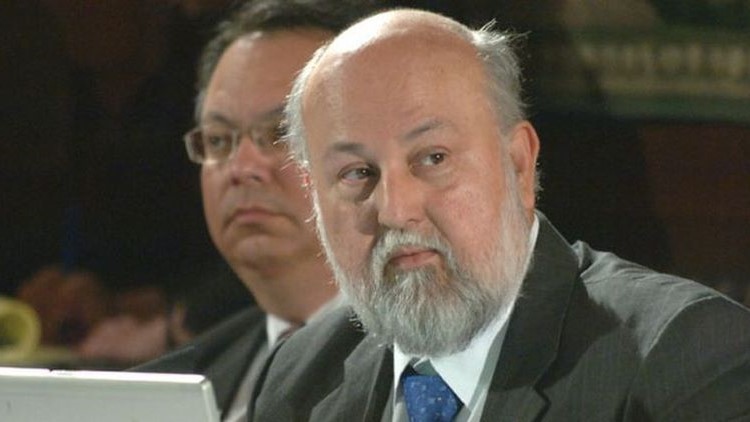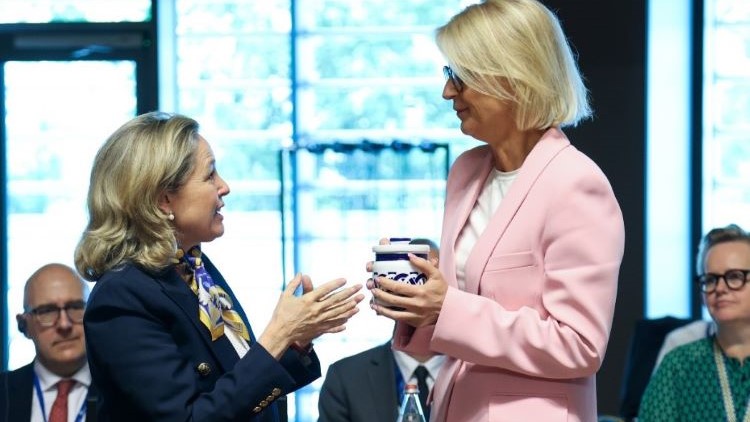Eduardo González
The Council of Ministers approved in its last meeting last Tuesday the granting of Spanish nationality by letter of nature to a fourth group of 29 Nicaraguan opponents expelled and stripped of their nationality by the regime of Daniel Ortega, bringing to 75 the number of beneficiaries of this measure so far this month. Among the beneficiaries of the measure are a former presidential pre-candidate and Nicaraguan ambassador to the U.S. and a former Minister of Foreign Affairs.
Specifically, as published in the Official State Gazette (BOE) last Wednesday, the Government has granted Spanish nationality by letter of nature to the former Nicaraguan ambassador to the US (between 2007 and 2009, under Daniel Ortega) and former presidential pre-candidate Arturo José Cruz Sequeira, the civil servant Claudia León York, the wife of former President Arnoldo Alemán (1997-2002) and former deputy María Fernanda Flores Lanzas, the former advisor to the judiciary Moisés Abraham Astorga Sáenz, human rights defender Mónica Augusta López Baltodano, former Sandinista guerrilla commander Mónica Salvadora Baltodano Marcenaro, Nicolás Palacios Ortiz (beaten by Sandinista fanatics, which started the April 2018 protests), conservative politician and former presidential candidate Noel José Vidaurre Argüello, former foreign minister Norman Caldera Cardenal (between 2002 and 2007, under the presidency of Enrique Bolaños) and former ambassador Mauricio José Díaz Dávila.
Also, the sociologist and political analyst Óscar René Vargas Escobar, the opponent Óscar Ricardo Rojas Campos, the journalist Patricia Amanda Orozco Andrade, the former judge of the Supreme Court of Justice and godfather of the wedding of the presidential couple Rafael Enrique Solís Cerda have received Spanish citizenship, opposition member Roberto José Álvarez Rojas, academic and president of the Nicaragua Freedom Coalition Rosalía del Carmen Gutiérrez Huete, ex-political prisoner and exiled Russian Evelyn Pinto Centeno, priest Sadiel Antonio Eugarrios Cano, former opposition congressman and political commentator Santiago Antonio Aburto Ovando, former congresswoman Silvia Nadine Gutiérrez, exiled bishop of Managua Silvio José Báez Ortega, journalist Sofía Isabel Montenegro Alarcón, president of the Unión Democrática Renovadora (Unamos, formerly MRS) Suyen Barahona Cuan, priest Uriel Antonio Vallejos, human rights master Uriel de Jesús Pineda Quinteros, priest Vicente Martínez Bermúdez, Walter Antonio Gómez Silva, former financial administrator of the now defunct Violeta Barrios de Chamorro Foundation; ex-political prisoner Wilfredo Alejandro Brenes Domínguez and journalist Wilfredo Ernesto Miranda Aburto.
This new group joins the 46 Nicaraguans who obtained Spanish nationality during the month of May. On May 11, the Government approved the nationalization of fourteen Nicaraguans, among them the sociologist Gertrudis Guerrero, wife of the exiled Nicaraguan writer Sergio Ramirez, who already had Spanish nationality. Also appearing in that first group were journalist Cristiana Chamorro, presidential pre-candidate who in the 2021 elections appeared as the most likely candidate to defeat Ortega; and journalist Carlos Fernando Chamorro Barrios, founder of the local media Confidencial and son of former president Violeta Chamorro. On May 24, the list was expanded with fourteen other Nicaraguans, among them Desirée Elizondo Cabrera, wife of Carlos Fernando Chamorro. Finally, on May 31, a third group of 18 Nicaraguans was granted nationality.
Last February 9, the Ortega regime expelled 222 opponents (diplomats, former state officials, human rights defenders, Sandinista dissidents, oppositionists, journalists, academics, students, businessmen and traders) accused of treason, from the country to the USA and stripped them of their nationality. After learning of the Ortega regime’s decision, the government of Pedro Sanchez offered to grant Spanish nationality to those declared “stateless” by the Nicaraguan regime.
On February 16, Daniel Ortega decreed the withdrawal of the nationality and the seizure of the assets of another 94 opponents for the same reasons. The day after Ortega’s decision, the Spanish government extended its offer to this second group of 94 Nicaraguans. In addition to Spain, the governments of Chile, Colombia, Brazil and Mexico have also offered nationality to the regime’s “stateless persons”.







